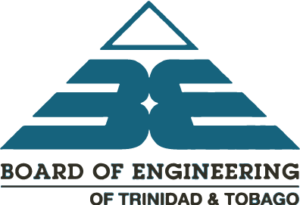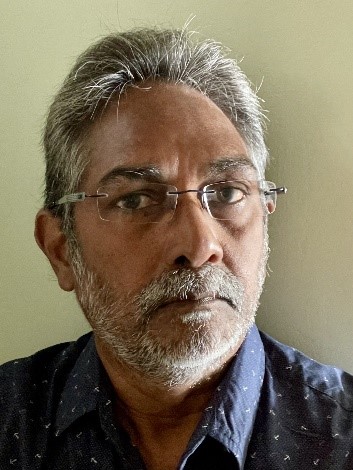Ahmin Baksh, BSc, M.Sc. SMIEEE; FAPETT; R.Eng.
Engineer Ahmin Baksh is a recipient of APETT’s Award for Sterling Service to the Association. This is an Award that is conferred on a Member in recognition of outstanding service to the Association. The Awardee would have had membership in APETT for at least 20 years and served on the Executive council for at least one year, was actively involved in the Association’s Works and has been a leader in completing specific projects or activities of the Association and in promoting its objectives. In that regard, Engineer Baksh contribution in the service of APETT, from Student Member to President and his long and exemplary level of professional commitment and contribution to the profession puts him in the category of an elder statesman in the profession.
Engineer Baksh is an Electrical Engineer with over 45 years in engineering practice and has the distinction of having held senior positions in three Caribbean electric utilities. He started his engineering career at the Trinidad & Tobago Electricity Commission where he served in the transmission system planning section of the utility. Thereafter, he took up an appointment with the Commonwealth Development Corporation as Transmission and Distribution Engineer for the Anguilla Electricity Company Limited and subsequently joined the Grenada Electricity Services Limited (Grenlec) as the Planning & Engineering Manager. His next key appointment was that of Chief Electrical Engineer and Head of the Electrical Engineering Section of Genivar, Trinidad & Tobago Ltd. (now WSP). Engineer Baksh currently practices as an independent electrical engineering consultant in the design of electrical installations for commercial buildings.
Q1. Congratulations on receiving the Award of Sterling Service to the Association of Professional Engineers of Trinidad and Tobago (APETT)! How does it feel to be recognized for your dedication and contributions to the association?
Firstly, let me say thanks for the acknowledgement and also take the opportunity to thank APETT for honouring me with this Award. How does it feel? It has been said many times over that the greatest thrill is to be honoured by one’s peers. So true! And that just about sums up my response. I can truly say that in all the years and ways in which I have contributed to APETT’s development, the advancement of the Profession was always the focus. In the early days as a very young engineer I looked up to the likes of Fenrick De Four and Alwyn Lequay, senior statesmen in APETT, who volunteered their time to the Association notwithstanding their busy schedules. With the bestowal of this award, I feel that I have earned the privilege to walk alongside these great engineers.
Q2. Obviously the Committee would have perused your history with APETT, but for the benefit of our readers, would you care to share some specific examples of the ways in which you’ve served the Association of Professional Engineers, and what motivated you to become involved to that extent?
My association with APETT began as a student at UWI. I recall the then president, Majid Ibrahim making a presentation to the students, and though the exact reasons are unclear now, I was impressed. After graduating my relationship with APETT continued. I served on three (3) Annual Technical Conference committees and on Council in the capacity of Assistant Secretary, Secretary, Vice President and eventually President in 2008/9. I was subsequently asked to serve on the Honours & Awards Committee, of which I am still a member, ten plus years later. Somewhere along the way I participated in about three (3) Career Guidance sessions for high school students.
I also served as a member of the Board of Engineering and as president of the TTGPA, all on behalf of APETT.
My motivation? I saw engineering as the unsung profession in our society and the region, taking second place to other professions like medicine and this is simply because, unlike these professions, engineers do not interact directly with the people who benefit from what they do. I therefore considered it necessary to raise the layman’s awareness of the importance of the engineering profession.
Q3. What do you believe are the most significant things you’ve accomplished during your service to the association?
I would probably pick my involvement on the Honours & Awards Committee. Prior to my term as president the H&A Committee met perhaps only once for the year and without any guidance. It is my view that this is the most important committee of APETT since it is the only committee that is enshrined in the constitution of the organization. This tells us that the framers of the constitution felt it paramount to recognize engineering achievement. And I wholeheartedly agree. As President, I made it a point to meet with the H&A Committee and set out some objectives including a review of the awards and recommendations for new ones. From that we now have five (5) awards, each with its defined Terms of Reference. The H&A Committee now meets monthly (or more) and the members devote a fair amount of time screening prospective candidates for the awards and identifying engineers to invite to be elevated to the grade of fellow. My disappointment, though, is that the general membership does not share my passion. Each year, calls go out via the secretariat to encourage members to nominate engineers for awards and the response can only be described as pathetic!
Q4. In what ways has your involvement with the Association impacted your professional development and career trajectory as an engineer?
In truth, I do not know that it has. Yes, there is the opportunity to network with your peers and perhaps seek advice or opinions outside of your workspace, but that was not on my agenda. It was never about me!
I am a firm believer of the value of volunteerism, not for material gain but for personal development. Volunteerism may be defined as a basic expression of human relationships, the need to participate in societies and to matter to others. It is said that the very ethos of volunteerism is infused with values which contribute significantly to the quality of life.
“The ends you serve that are selfish will take you no further than yourself but the ends that you serve that are for all, in common, will take you to eternity.” – Marcus Garvey
Q5. As someone who has demonstrated sterling service to APETT, what advice would you offer to other engineers who are considering becoming more involved in the Association?
The answer is simple, YES, PLEASE DO! Come on board! Your association needs you. There are many who have given of their time only because it looks good on their CV. Let us go past that and look on it as a way of giving back to the profession – and by extension, the Country – not for what it has or promises to give to you. You will not regret it. It is important for engineers tounderstand the value that the association brings to both the individual and the profession as a whole. These include networking opportunities, professional development resources, advocacy efforts, and other benefits the association provides.
Newcomers need to start small by attending events, joining committees, or volunteering for specific tasks or projects. This allows them to ease into further involvement and gain a better understanding of how the association operates. Individuals can identify areas within the association that align with their passion and expertise. I will also encourage proactive participation by suggesting ideas, offering to lead initiatives, and taking on responsibilities. Proactive members are often the ones who make the most significant impact within the association.
Q6. What do you see as the most pressing challenges or opportunities facing the engineering profession today, or for that matter, the Association of Professional Engineers, and how can these be addressed?
The profession in general is in a good space. There is increasing recognition of the importance of engineering to the development of the nation and with it brings demands and opportunities for engineers. The practice of engineering is a technological, knowledge-based endeavor which should be undertaken by persons who are qualified and certifiably competent in their respective field of practice.
But with it too, comes the need to regulate the practice to maintain standards and hence provide the necessary safeguard to the public, as often happens with other professional bodies. This is to ensure public health, safety and welfare in conformity with accepted engineering codes, standards and best practices. The BOETT was established to do just that. Therefore, strictly speaking, engineering registration is intended to protect the public interest rather than that of the engineer.
The fact that for more than 25 years APETT and BOETT have been advocating for the Act to be amended to make it mandatory for engineers to be registered to legally practice their trade in the country, without success, is indeed regrettable. The challenge therefore is the political will on the part of the line Minister to take the matter to Parliament. During my short stint as a board member of the BOETT, we met with every new line minister and the response was always positive but that was as far as it reached. It requires the support of the line minister for a proposed amendment to the Act to reach Parliament.
The further fact that the term of office of the current Board of the Board of Engineering expired over a year ago and the line Minister to date, seems unable or refuses to appoint a new Board is indeed perplexing and perhaps demonstrates a complete disrespect of the profession. What is clear though is that the BOETT, even as it awaits a renewed mandate, must not be deterred in its resolve to regulate the profession and to ensure that the standards are in line with international best practice.
As for Opportunities, the country is in a state of economic low, but once there is infrastructure development of any kind going on there will be a need for engineers. I believe that at the current time there are a number of graduates who are underemployed. I am confident that that will change, but of course we need to be cognizant of the fact that we are but a very small nation that is seriously impacted by what happens on the world stage, like the war in the Middle East. Difficult to put a timeframe on it but I am optimistic that the future is bright.
Q7. Looking ahead, what do you hope to achieve or contribute to the association in the coming years, and how do you plan to continue your service?
I think I have given a lot to APETT and I shall always be available to assist in times of need. However, I feel that it is time to give way to younger engineers. At some point in our lives we have to face the reality that times change and so does the way of doing things. One notable example is the rise in popularity of the Virtual Meetings. Persons of my vintage much prefer physical meeting where we can interact with others and perhaps even ‘read’ the body language. That is not the case for the now generation. So, moving forward I see my contribution as a veritable elder providing some balance to the ‘Force’.


